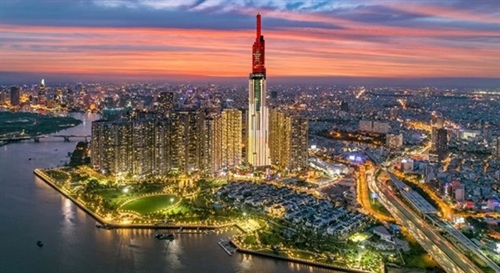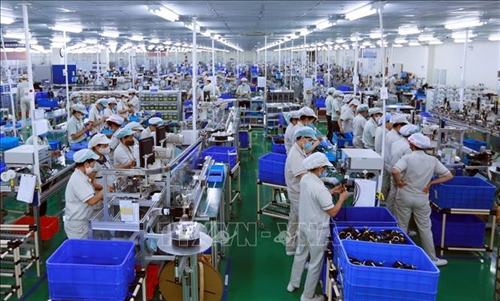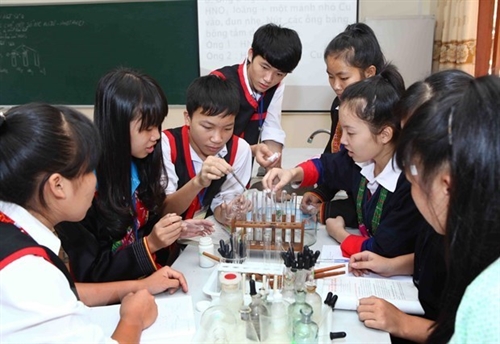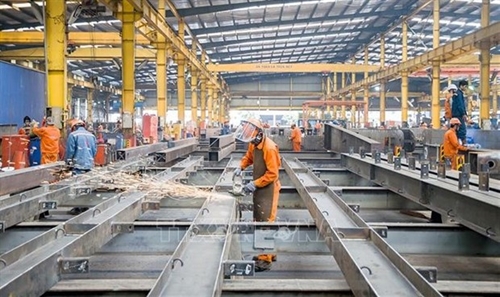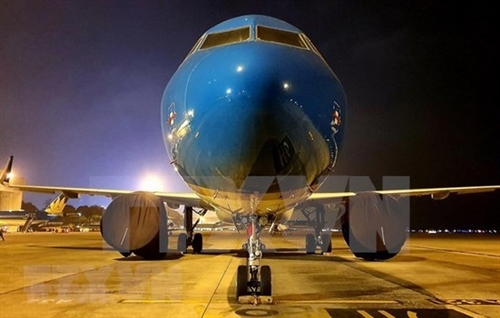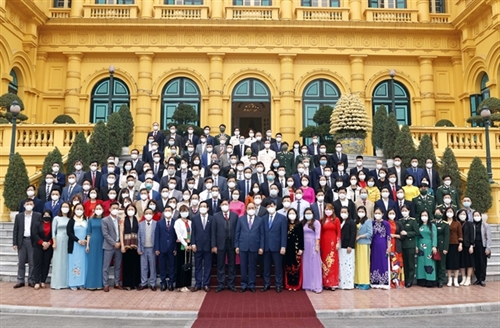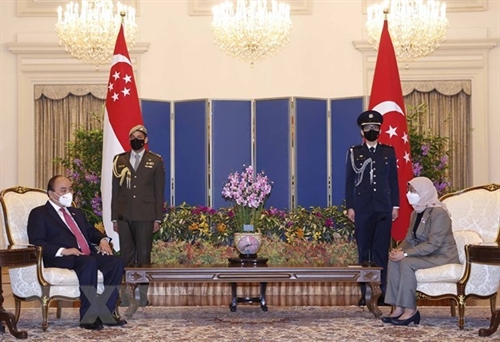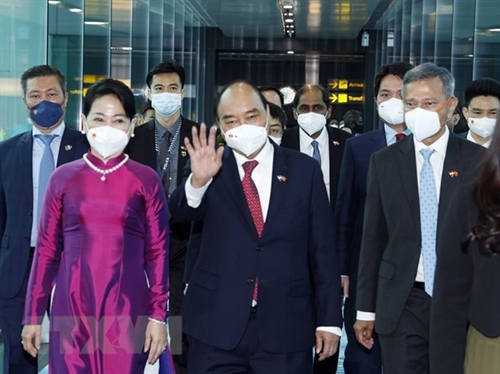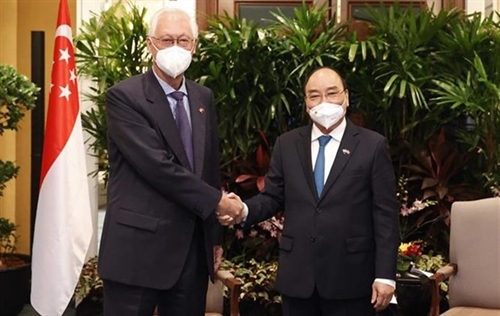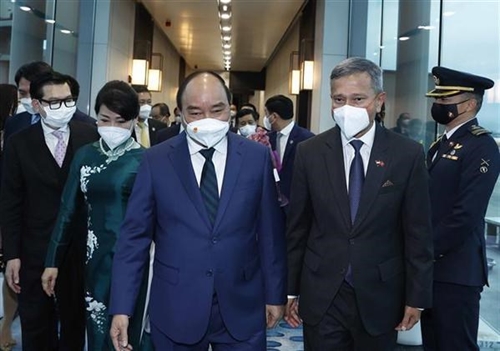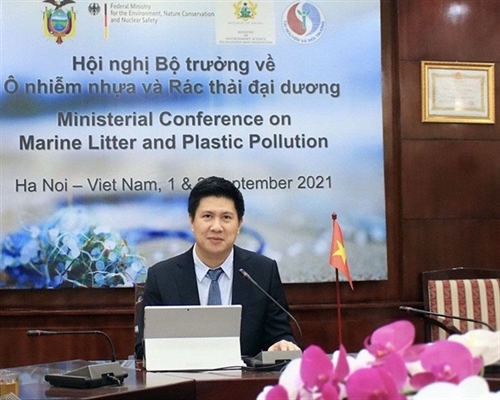 |
| Nguyen Que Lam, Deputy Director of the Vietnam Administration of Seas and Islands |
Nguyen Que Lam, Deputy Director of the Vietnam Administration of Seas and Islands, under the Ministry of Natural Resources and Environment, speaks to Tài Nguyên Môi Trường (Natural Resources and Environment) online newspaper about the participation of Vietnam in the global treaty to reduce plastic pollution, on the occasion of the fifth session of the United Nations Environment Assembly that took place on February 28.
Why does the problem of reducing ocean plastic waste need a global treaty?
We need a global treaty on reducing ocean plastic waste because the global supply chains and trade have caused plastic waste and the flow of plastic waste into the oceans. The challenge of plastic pollution and ocean plastic waste is believed to be transboundary and on a global scale. No country can adequately address the various aspects of the challenge alone.
Thus, it is necessary to issue a global treaty to reduce plastic pollution, aligned with the 2030 Agenda and the United Nations Sustainable Development Goals (SDGs), based on a shared and clear vision with ambitious goals, relevant indicators and specific measures. It is a balanced framework of international cooperation that consists of coordinated actions with the participation of all parties, including Governments, industries, the scientific community and civil society organizations, taking into account the specific conditions and needs of countries, in order to address ocean plastic pollution.
Vietnam is one of the pioneers of building the global treaty. So, what is the role of Vietnam in the international arena in reducing ocean plastic waste? How have we performed our role in the past?
The views of our Party and State have always been unified on participating in building a global treaty to tackle ocean plastic pollution. Specifically, under the Resolution No. 36-NQ/TW of the Central Committee of the Party on the Strategy for sustainable development of Vietnam's marine economy by 2030, with a vision towards 2045, one of the important goals is preventing and significantly reducing pollution of the marine environment, as well as pioneering in the region in reducing ocean plastic waste. Besides, one of the solutions under the strategy is joining important international treaties on the sea, giving priority to the areas of resource management and environmental protection in the immediate future; and promoting the formation of a regional and international co-operation framework on prevention and reduction of ocean plastic waste.
Moreover, the Government's Master Plan and five-year Plan for the implementation of the resolution also target that it has to build and carry out the project of “Promoting the formation of a regional and international co-operation framework on prevention and reduction of ocean plastic waste”, during the period of 2026-30.
On August 16, 2021, Prime Minister Pham Minh Chinh issued Decision No. 1407/QĐ-TTg, approving the project that Vietnam actively prepares and participates in a global treaty on ocean plastic pollution.
At international forums, Vietnam has actively participated and accompanied the international community to build a global treaty to tackle ocean plastic pollution. In 2017, Vietnam officially joined the list of 127 countries that ratified the United Nations Environment Assembly’s Resolution on plastic waste and ocean microplastics. In 2018, at the G7 Summit held in Canada, Prime Minister Nguyen Xuan Phuc pledged to act and called for global cooperation in solving the problem of ocean plastic waste. In 2020, Vietnam participated in bilateral and multilateral dialogues with governments of other countries to discuss optimal solutions and build potential mechanisms to enhance international cooperation in addressing ocean plastic pollution.
Additionally, Vietnam also joined the process of forming the Inter-governmental Negotiating Committee (INC) and showed its support by sending representatives to participate in an Ad Hoc Open-Ended Expert Group on Marine Litter and Microplastics (AHEG) of the United Nations Environment Assembly. At the third AHEG Session, Vietnam expressed its opinion: “We see that the problem of ocean waste and micro-plastics is a matter of concern. The ocean waste and micro-plastics challenges are global issues and require global solutions and initiatives aligned with regional and national priorities.”
In September 2021, Vietnam, along with Germany, Ecuador and Ghana, co-hosted the Ministerial Conference on Plastic Pollution and Ocean Waste with the goal of building momentum to tackle the problem of plastic pollution and marine litter that has been generated by many previous international discussions. Vietnam also pointed out specific proposals to address the problem at the conference and planned to present them at the fifth session of the United Nations Environment Assembly (UNEA-5.2).
One of the remarkable outcomes of the conference was that 76 countries, including Vietnam, adopted the Ministerial Declaration to build political momentum and will to promote a coherent global strategy to address the problem of plastic pollution and ocean waste.
By the adoption of the declaration, Vietnam has taken another step in continuing to affirm its political commitments to the international community, contributing to sending a strong signal to UNEA-5.2 of supporting for the establishment of an Inter-Governmental Negotiating Committee to initiate negotiations for a global treaty on reducing plastic pollution and ocean waste, in line with the 2030 Agenda and the SDGs.
What does Vietnam do to prepare for the building and implementing the global treaty on reducing ocean plastic waste?
On August 16, 2021, Prime Minister Pham Minh Chinh issued the Decision No. 1407/QĐ-TTg, approving the project that Vietnam actively prepares and participates in a global treaty on reducing ocean plastic pollution as a move to help Vietnam fully prepare the necessary conditions and resources as well as establish a coordination mechanism for relevant ministries, sectors and localities to participate in the negotiation and participation in the treaty. Thereby, ensuring the nation's highest rights and interests in the prevention and reduction of ocean plastic pollution.
Under the project, six main tasks have been set out. The main tasks consist of capacity building for negotiation preparation; information collection and database establishment; allocating resources for negotiation preparation; establishing a coordination mechanism; mobilizing domestic and international support; and strengthening national roles and responsibilities.
The project aims to ensure sufficient conditions for resources as well as information and data to serve the preparation and participation in the negotiation, ensuring the nation’s rights and interests in the prevention and reduction of ocean plastic pollution.
The environment ministry is assigned to take responsibility and coordinate with other agencies and organizations to implement the project. The Vietnam Administration of Seas and Islands is tasked to be the agency in charge of advising the ministry in formulating the plan to implement the project. We are working hard to ensure the quality and efficiency of the implementation of the project.
The fifth session of the UN Environment Assembly (UNEA-5) is taken place in a two-step approach. The first session of UNEA-5 (UNEA-5.1) was held online on February 22 and 23, 2021, and the resumed in-person session of UNEA-5 (UNEA-5.2) takes place online and in Nairobi on February 28 - 2 March 2022.
The UNEA-5.2 is taken place with the participation of more than 100 member countries of the United Nations (UN), including Vietnam. It will discuss the overall framework for the first global treaty on plastic pollution control. This is likely to be the most important global treaty since the 2015 Paris Agreement for the world to work together to reduce ocean plastic pollution and save the marine ecological environment, according to the UN.- (VNS/VLLF)
